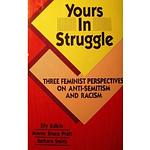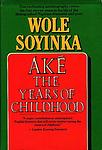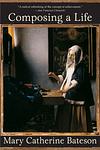The Greatest "Nonfiction, Social & Cultural Fiction" Books Since 1950
Click to learn how this list is calculated.
This list represents a comprehensive and trusted collection of the greatest books. Developed through a specialized algorithm, it brings together 284 'best of' book lists to form a definitive guide to the world's most acclaimed books. For those interested in how these books are chosen, additional details can be found on the rankings page.
Genres
Social & Cultural Fiction is a literary category that encompasses novels and stories that delve into the complexities of society and culture, exploring themes such as class, race, gender, and identity within specific social contexts. These narratives often provide a lens through which readers can examine the intricacies of human relationships and the impact of cultural norms and societal structures on individuals and communities. By offering a fictional yet reflective portrayal of real-world social dynamics, this genre invites readers to gain a deeper understanding of the diverse experiences that shape our world. Authors in this category frequently use their characters and settings to comment on contemporary issues, challenge prevailing ideologies, and provoke thought about the possibility of social change, making Social & Cultural Fiction a powerful tool for empathy and a mirror for the ever-evolving human condition.
Countries
Date Range
Reading Statistics
Click the button below to see how many of these books you've read!
Download
If you're interested in downloading this list as a CSV file for use in a spreadsheet application, you can easily do so by clicking the button below. Please note that to ensure a manageable file size and faster download, the CSV will include details for only the first 500 books.
Download-
1. The Woman Warrior: Memoirs of a Girlhood Among Ghosts by Maxine Hong Kingston
This memoir explores the life of a first-generation Chinese-American woman, navigating the complexities of her dual heritage. Through five interconnected stories, the book delves into the author's childhood experiences, her mother's tales of old China, and the struggles of reconciling these two worlds. The memoir is a blend of reality and mythology, illustrating the author's struggle with her identity, the expectations of her traditional Chinese family, and the challenges of growing up in a predominantly white American society.
-
2. The Great Railway Bazaar by Paul Theroux
"The Great Railway Bazaar" is a travelogue in which the author embarks on a four-month journey by train from London through Europe, the Middle East, the Indian subcontinent, Southeast Asia, and Siberia, and then back to Europe. The book is a vivid and insightful account of the people, cultures, landscapes, and experiences encountered during the journey, painting a unique picture of the world as seen from the perspective of a train window. The author's sharp observations and engaging storytelling make this journey as much an inner exploration as a geographical one.
-
3. The Emigrants by Winfried Georg Sebald
"The Emigrants" is a novel that explores the experiences and memories of four different emigrants, each with a unique and complex history. The narrative primarily focuses on the psychological impact of displacement and the haunting nature of the past. The author delves deep into their lives, revealing their struggles with identity, loss, and the persistent influence of their roots. The narrative is interwoven with historical events, photographs, and other documents, creating a rich tapestry that blurs the line between fact and fiction.
-
4. What Is the What by Dave Eggers
The novel is a fictionalized account of a real-life Sudanese refugee, Valentino Achak Deng, who was forced to flee from his village during the Second Sudanese Civil War. The story follows his harrowing journey as a child through Ethiopia and Kenya, his life in various refugee camps, and his eventual resettlement in the United States. The book explores themes of survival, identity, and the power of storytelling, while shedding light on the tragic history and ongoing humanitarian crisis in Sudan.
-
5. Silences by Tillie Olsen
"Silences" is a seminal work of literary criticism and feminist thought that explores the systemic obstacles and personal challenges that have historically silenced the voices of writers, particularly women and those from working-class or marginalized backgrounds. The book delves into the patterns of literary silence due to sex, social circumstance, and the demands of daily life that have often left these voices unheard. It combines personal reflection, historical analysis, and a passionate call to recognize and overcome the conditions that inhibit creative expression. The author argues that the loss of these voices is a detriment to literature and society as a whole, advocating for a more inclusive understanding of the literary canon and the conditions necessary for the full flowering of artistic talent.
-
6. The Liars' Club by Mary Karr
The memoir is a gritty, often hilarious look at a childhood in a dysfunctional family in a small Texas town. The narrative follows the author's experiences growing up in the 1960s in a family rife with alcoholism, mental illness, and violence. It is a story of resilience and survival, as the author navigates her chaotic home life, the sexual abuse she suffered, and her mother's mental instability, eventually finding solace in literature and writing. Despite the harsh realities it depicts, the book is filled with humor and love, offering a poignant exploration of the bonds of family and the power of storytelling.
-
7. Wittgenstein's Nephew by Thomas Bernhard
"Wittgenstein's Nephew" is a semi-autobiographical novel that explores the friendship between the narrator and his friend Paul, who is the nephew of the famous philosopher Ludwig Wittgenstein. The story takes place in Vienna and is set against the backdrop of the Austrian mental health system. The novel delves into themes of sanity, insanity, and the fine line that separates the two, while also offering a critique of Austrian society. It is a meditation on the nature of illness, both physical and mental, and the impact it has on personal relationships and one's perception of the world.
-
8. Guests Of The Sheik by Elizabeth Warnock Fernea
The book is an autobiographical account of a young American woman's experience living in a small Iraqi village in the late 1950s. As the wife of an anthropologist, she immerses herself in the local culture, particularly the lives of the women, navigating the complexities of gender roles, traditions, and the veil. The narrative offers an intimate glimpse into the domestic lives, social customs, and familial bonds of the villagers, while also reflecting on the author's own cultural assumptions and the process of cross-cultural understanding. Through her journey, the author gains a deeper appreciation for the community's way of life and confronts the challenges of being an outsider in a tightly-knit society.
-
9. Women Of The Shadows by Ann Cornelisen
"Women of the Shadows" is a poignant exploration of the lives of five Italian women in the impoverished region of southern Italy during the mid-20th century. The book delves into the personal narratives of these women, revealing the harsh realities and societal expectations they face. Through intimate portraits, the author uncovers the strength and resilience of these women as they navigate a world of limited opportunities, traditional gender roles, and the struggle for self-determination. The work serves as both a testament to the enduring spirit of these individuals and a critique of the cultural and economic conditions that shape their lives.
-
10. L'étrange Destin De Wangrin by Amadou Hampâté Bâ
"L'étrange Destin De Wangrin" by "Amadou Hampâté Bâ" is a captivating narrative that delves into the life of Wangrin, a complex and enigmatic figure in West African society. Through a series of interconnected stories, the book explores Wangrin's rise from a humble clerk to a powerful and influential figure, as well as his eventual downfall. Set against the backdrop of colonialism and cultural clashes, the novel offers a thought-provoking exploration of identity, power dynamics, and the consequences of one's choices.
-
11. Out Of The Fire by Ales Adamovich, Yanka Bryl, Vladimir Kolesnik
"Out Of The Fire" is a powerful collection of stories that vividly depict the horrors and resilience of the human spirit during World War II. Through the eyes of various characters, the book explores the devastating impact of war on individuals and communities, capturing their struggles, sacrifices, and moments of hope amidst the chaos. With hauntingly beautiful prose, the authors bring to life the unimaginable atrocities of the war, reminding us of the importance of remembrance and the enduring strength of the human soul.
-
12. Dependency by Tove Ditlevsen
"Dependency" is the harrowing autobiographical account of a woman's struggle with addiction and the complexities of her personal life in mid-20th-century Copenhagen. Through a raw and intimate narrative, the book explores the protagonist's turbulent relationships, her quest for love and artistic recognition, and her descent into drug dependency. The memoir provides a candid look at the cycles of abuse and recovery, painting a poignant portrait of a woman grappling with her inner demons and societal expectations in a time when such topics were often taboo.
-
13. The Abandoned Baobab by Ken Bugul
The book is a poignant autobiographical novel that delves into the life of a young African woman who feels disconnected from her roots and culture after returning from studies in Europe. Struggling with a sense of alienation and identity crisis, she spirals into a life of excess and despair in the city, seeking solace in relationships and substances. Her narrative is a raw and honest exploration of postcolonial identity, womanhood, and the search for meaning in a world where she feels like an outsider both in her home country and abroad. The title symbolizes her sense of abandonment and the deep longing for a sense of belonging and understanding.
-
14. In My Mother's House by Kim Chernin
"In My Mother's House" is a poignant exploration of the complex relationship between a daughter and her mother, set against the backdrop of the daughter's journey to understand her own identity and the influence of her mother's past. The narrative delves into themes of feminism, psychoanalysis, and Jewish cultural heritage, as the daughter grapples with her mother's expectations and the weight of generational trauma. Through a blend of memoir and fiction, the book examines the intricate bonds of family and the struggle for self-definition in the shadow of a powerful maternal figure.
-
15. Yours In Struggle by Elly Bulkin, Minnie Bruce Pratt, Barbara Smith
"Yours In Struggle" is a collection of essays that delve into the complexities of building alliances across racial, sexual, and class divides within the feminist movement. The three authors, each from different backgrounds, share their personal experiences and insights on the challenges and necessities of intersectional solidarity. They explore themes of identity, oppression, and activism, emphasizing the importance of understanding and respecting differences while working towards a common goal of equality and social justice. The book serves as a call to action for feminists to engage in self-critical reflection and to commit to an inclusive and diverse movement that addresses the interconnected nature of various forms of discrimination.
-
16. Ake: The Years Of Childhood by Wole Soyinka
"Ake: The Years of Childhood" is a memoir that chronicles the early years of a Nigerian boy growing up in the town of Ake. Set in the 1940s, the book vividly captures the author's experiences, from his close-knit family life to his encounters with colonialism and the struggle for independence. Through his insightful and lyrical prose, the author takes readers on a nostalgic journey filled with rich cultural traditions, humorous anecdotes, and poignant reflections on the complexities of childhood.
-
17. My Place by Sally Morgan
"My Place" is a poignant autobiographical account that traces the personal journey of an Aboriginal woman in Australia as she uncovers her family's past and her own cultural identity. Through a series of interviews and personal reflections, the narrative delves into the experiences of her mother, grandmother, and great-uncle, revealing the hidden stories of displacement, suffering, and resilience that were kept secret due to the shame and stigma associated with their Aboriginal heritage. The book is a powerful exploration of the impact of colonialism and racism on individual lives and serves as a testament to the strength of family bonds and the reclaiming of one's history and sense of self.
-
18. A World Apart by Gustaw Herling-Grudziński
"A World Apart" is a powerful memoir that recounts the author's experiences as a political prisoner in a Soviet labor camp during World War II. Through vivid and harrowing descriptions, the book exposes the brutality and inhumanity of the camp system, as well as the resilience and strength of the prisoners. It serves as a haunting reminder of the atrocities committed during this dark period of history and the enduring human spirit.
-
19. A Small Place by Jamaica Kincaid
This book offers a poignant and provocative look into the complexities of colonialism and its enduring impact on a Caribbean island. Through a blend of personal reflection and social commentary, the narrative delves into the island's history, the exploitation by colonial powers, and the tourism industry's role in perpetuating economic disparities and cultural erosion. The author's incisive prose challenges readers to confront the uncomfortable realities of a postcolonial world, where the beauty of the landscape contrasts sharply with the lives of its native inhabitants, who continue to grapple with the legacies of oppression and cultural identity.
-
20. Aids And Its Metaphors by Susan Sontag
In this thought-provoking work, the author extends her previous analysis of the social and psychological implications of disease to the AIDS epidemic. She explores how metaphors and myths surrounding the illness contribute to stigmatizing those affected, often reinforcing existing prejudices and fears. The book delves into the language used to describe AIDS and its impact on public perception, challenging the punitive and militaristic metaphors that frame the disease as a punishment or an enemy to be fought. Through her examination, the author argues for a more empathetic and less judgmental approach to understanding and addressing the AIDS crisis, advocating for compassion and support over moralistic condemnation.
-
21. Composing A Life by Mary Catherine Bateson
"Composing a Life" explores the concept of life as an improvisational art form, drawing on the narratives of diverse women who have successfully adapted to life's unpredictability and challenges. The book examines the ways in which creativity, flexibility, and learning from experience are integral to constructing a meaningful existence. Through the stories of these women, including the author's own experiences, the narrative delves into themes of change, resilience, and the ongoing process of shaping one's life story, emphasizing that life is not a linear progression but a complex, evolving composition.
-
22. Dancing At The Edge Of The World by Ursula K. Le Guin
"Dancing at the Edge of the World" is a thought-provoking collection of essays, talks, and reviews by a renowned speculative fiction author, which delves into a wide array of topics ranging from feminism, social responsibility, and the author's perspectives on writing and storytelling to broader reflections on humanity's place in the natural world. The book is a testament to the author's eloquence, intellectual curiosity, and profound insights into the human condition, offering readers a unique blend of literary criticism, personal narrative, and cultural commentary that challenges and inspires. Through her exploration of alternative realities and the power of imagination, the author invites readers to consider new possibilities and the transformative potential of fiction.
-
23. Beirut Fragments by Jean Said Makdisi
"Beirut Fragments" is a poignant memoir that delves into the personal experiences of a woman living through the Lebanese Civil War. The narrative captures the daily struggles, fears, and the resilience of civilians caught in the crossfire of a fragmented city. Through her eyes, readers witness the transformation of Beirut from a vibrant cultural hub to a landscape scarred by violence and destruction. The author's reflections offer a deeply human perspective on the impact of war, the loss of loved ones, and the enduring hope for peace amidst chaos. Her story is a testament to the strength of the human spirit in the face of relentless adversity.
-
24. Silent Dancing by Judith Ortiz Cofer
"Silent Dancing" is a poignant collection of autobiographical essays and poetry that weave together the memories of a Puerto Rican girl growing up in two worlds: the vibrant, warm island of her birth, and the cold, often unwelcoming urban landscape of New Jersey. Through a series of reflective and lyrical narratives, the author explores the complexities of her bicultural identity, dealing with themes of family, language, and the search for a sense of belonging. Her stories oscillate between the past and the present, capturing the nostalgia for a homeland left behind and the challenges of navigating a new American life, all while trying to hold onto her cultural heritage and personal history.
-
25. Superfiction by Joe David Bellamy
"Superfiction" is a collection of essays that explores the concept of "superfiction," a term coined by the author to describe a new kind of writing that blends traditional storytelling with contemporary literary techniques. The book examines how this new form of fiction can be used to create more complex and engaging narratives, and provides an in-depth analysis of works by various authors who have embraced this style. It also discusses the evolution of literary criticism and the role it plays in shaping our understanding of literature.
Reading Statistics
Click the button below to see how many of these books you've read!
Download
If you're interested in downloading this list as a CSV file for use in a spreadsheet application, you can easily do so by clicking the button below. Please note that to ensure a manageable file size and faster download, the CSV will include details for only the first 500 books.
Download


















